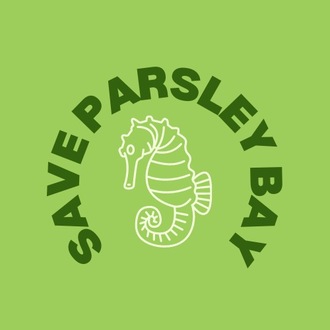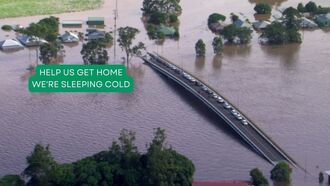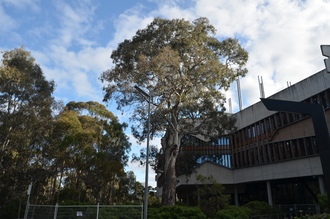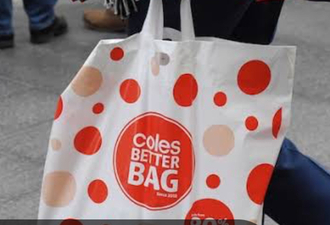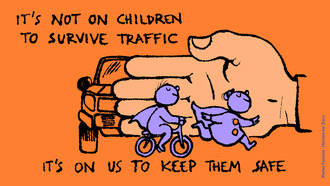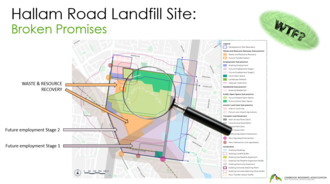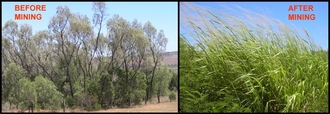-
Save Parsley Bay - *SEE NEW PETITION LINK BELOW**NEW PETITION LINK* - https://www.parliament.nsw.gov.au/la/Pages/ePetition-details.aspx?q=vJ6XNj1QnevTFY9U2SI2bA Parsley Bay is a natural phenomena (backed by experts). There is an anomalously abundant amount of marine, animal, and plant life within this Littoral Rainforest. With a minimum of 3 years of construction (and likely complications), this PARTIALLY underground project will uproot partial (yet significant) amounts of the rainforest area of the Reserve. This includes the removal of trees, significant drilling and digging, and highly likely contamination of the soil, creek and harbour. Parsley Bay reserve is home to a Plethora of endangered Flora, Fauna and Marine Life. This project poses a massive danger to these vulnerable species, and the risk of extinction cannot be ignored! The White Seahorse and the Powerful Owl are just two of many beautiful, at-risk species who call Parsley Bay home. We can't jeopardise their existence or the significant role that they play in our ecosystem! Regardless of where you live, you can help us to save the natural inhabitants of this little pocket of paradise. Don’t let Sydney Water take advantage of the people, let’s take action to save our environment! @saveparsleybay - on all platforms5,182 of 6,000 SignaturesCreated by Max Miller
-
Save The Campaspe River Macedon RangesPlease show your concern and support this petition as our Campaspe River is regularly been noted as unsafe for recreational activities and wildlife. How is it considered acceptable to use our waterways as drains. EPA is right now considering an amendment to Coliban Water licence to allow them to continue to pollute The Campase.141 of 200 SignaturesCreated by Karan Hayman
-
THRIVE ON THE FLOOD PLAIN - SAVE OUR HOMESElderly, single parents families, people living with disabilities or chronic illness are sleeping cold in tents and caravans or in temporary accommodation. Help us help them.263 of 300 SignaturesCreated by Lyndall Murray
-
Protect our old growth trees at La Trobe UniversityHoneywell are planning to remove an old growth River Red Gum that is located out the front of the AgriBio Building despite the initial arborist report recommending to manage the tree using "weight reduction pruning, canopy retrenchment pruning and re-cabling of limbs". This particular individual tree is classified as remnant vegetation and is thought to be up to 400 years old (pre-European). It is a critical habitat tree with many hollows and we know that many species are currently inhabiting this tree, including sugar gliders, lorikeets, possums, and more. (For context: it takes about 100 years for a hollow to form!) Many species are known to nest, roost and forage in rare old trees around La Trobe University, most noteworthy are Swift Parrots (EPBC Act-listed as Critically Endangered), and Gang Gang cockatoos (EPBC Act-listed as Endangered). See here for some of the species we found living in and around this old River Red Gum outside the front of AgriBio: https://latrobeuni-my.sharepoint.com/:f:/g/personal/19631648_students_ltu_edu_au/EpsaxXpUqLtGr45F7Sko0GcBYonMjJFuaIKFmMQZSJxeMw?e=wvQPeJ We as a community should be concerned because the loss of ancient trees is a loss to an irreplaceable part of our natural and cultural heritage. The notion that this giant tree, imposing in presence, impressive in stature, and high in habitat value, may be replaced by planting a juvenile tree is nothing short of incomprehensible. Not in several lifetimes at least, given it has survived 3 centuries! Our previous petition gained 700 signatures. Signed by concerned members of the public, students and staff of La Trobe University. This number continues to increase every day. Please help us protect our urban remnant vegetation and sign this petition! ---------- Here are some of the comments made by people as to why they signed this petition, it is truly moving and is a very concerning issue for people: Indigenous Staff member – “As a First Nations women, I believe we should have further information as to why the tree is being cut down. It is part of Wurundjeri Country.” LTU Student - “This tree is irreplaceable habitat, and La Trobe cannot pretend to be committed to environmental preservation and conservation if this is allowed to occur. Find another solution. We CANNOT keep destroying habitat because it is inconvenient.” LTU Staff - “La Trobe University campus is unique in its ecological habitat and sense of place. Significant old trees like this make La Trobe. There are multiple alternatives to removal of this tree and a second opinion by an arborist is necessary. La Trobe urgently needs to review it's vegetation protection approach if such a removal is deemed possible without thorough review and staff and student consultation. Similarly, the proposed removal of significant old trees and understory from the proposed solar farm should be critically considered. You can not get this kind of contribution to the university back by planting new small trees.” LTU Alumni - “This tree pre-dates European colonisation of the site, and its retention, protection from built encroachments, and ongoing ecological management, together with other adjacent pockets of native vegetation, around AgriBio & the R&D Park, were strict Planning Permit requirements for LTU, in perpetuity, imposed as essential minimum obligations, by DEECA's regional Biodiversity Management division. LTU needs to retain this tree, and all other adjacent pockets of native vegetation, around AgriBio & the R&D Park, and exclude built encroachments & people access & risks, and manage all these ecological assets, to the highest best-practice, as per the National standards for the Practice of Ecological Restoration in Australia. Anything short of fulfilling these obligations destroys the community social licence on which La Trobe stands and trades!” Community member - “I support this petition, the old river Red Gum Tree shouldn’t be removed. I support this, because the removal of the tree can lead to significant negative impacts on the local environment and ecosystem. Such as: loss of habitat, reduced biodiversity, soul erosion, and increased carbon emissions. Additionally, this Red Gum tree holds cultural and aesthetic value, providing a sense of history and continuity. Therefore, removing the tree can have negative impacts on the local community. Thanks to the Botany and Plant Ecology Society for raising awareness and support for the preservation of the old river Red Gum Tree, you are helping to protect the local ecosystem and heritage.” --------1,004 of 2,000 SignaturesCreated by Iris Hickman

-
COLES TO BAN PLASTIC BAGSIn this era of climate emergency, all industries are asked to audit their practices to be more sustainable. One way for supermarkets to become more sustainable is to ban the use of plastic bags. The giant chain, Woolworth, has stopped the supply of plastic bags in 2022. They scheduled to scraped their paper bags later this year. Coles Supermarket chain, another giant in Australia, has no plans to be plastic free. They do not even have the alternative of paper bags for their consumers. Furthermore, the use of plastic bags is the only choice for online deliveries (There isn’t a NO BAGS option). Coles has also stopped using their Redcycle plastic bags collection bin, to collect used bags for recycling. They have relinquished their responsibility in any commitment to sustainability. Workplaces that require regular online deliveries are inundated with plastic bags that have NO WHERE TO GO, other than landfill. Coles must address this corporate responsibility.8 of 100 SignaturesCreated by Suzette Lau
-
Safe Streets to School: ParramattaChildren deserve to walk or ride to school safely. Walking to school improves kids' fitness and independence. However, they are often driven over short distances to school by parents. Parents perceive that their child's journey to school is unsafe on part of or on their whole journey. As a result, our streets are subject to tens of thousands more car trips every year, making them even less safe and clogging up roads with unnecessary traffic during morning drop off and afternoon pick up. Streets without footpaths and crossings with speed limits higher than 30km/h are not considered safe by Australia's safe system approach. The Case for crossings: Research shows that children cannot judge gaps in traffic consistently when cars go faster than 30km/h to safely cross a street On streets where there are no footpaths and crossings, reducing the car speed to 30km/h would prevent most accidents: the stopping distance for a car traveling 30km/h is 13m. Stopping distance for a car traveling 50km/h is 37m. The risk of death or serious injury if hit at 30km/h is less than 10%; compared to 90% if hit at 50km/h. It is an unreasonable risk to place our children in harms way on their journey to school.2 of 100 SignaturesCreated by Melissa Brooks
-
Stop Salmon Farming on Tasmanian Northwest CoastTasmania's waters and beaches are pristine. Our region is a drawcard for visitors from all over the world. Anyone in the world can support this petition. We have a flourishing tourism industry which will be destroyed by salmon farming. We rely on our clean, green image for employment and the success of many businesses. We do not want to trade our tourism industry for polluting salmon farms.409 of 500 SignaturesCreated by Robyn Weare

-
Residents for Safe Streets to School: Ku-ring-gaiChildren deserve to walk or ride to school safely. Walking to school improves kids' fitness and independence. However, they are often driven over short distances to school by parents. Parents perceive that their child's journey to school is unsafe on part of or on their whole journey. As a result, our streets are subject to tens of thousands more car trips every year, making them even less safe and clogging up roads with unnecessary traffic during morning drop off and afternoon pick up. Streets without footpaths and crossings with speed limits higher than 30km/h are not considered safe by Australia's safe system approach. The Case for crossings: Research shows that children cannot judge gaps in traffic consistently when cars go faster than 30km/h to safely cross a street On streets where there are no footpaths and crossings, reducing the car speed to 30km/h would prevent most accidents: the stopping distance for a car traveling 30km/h is 13m. Stopping distance for a car traveling 50km/h is 37m. The risk of death or serious injury if hit at 30km/h is less than 10%; compared to 90% if hit at 50km/h. It is an unreasonable risk to place our children in harms way on their journey to school.11 of 100 SignaturesCreated by Ela Ostovary
-
No to more waste at Hampton Park HillIn 2022 the City of Casey released the draft 'Hampton Park Hill Development Plan’ which proposes to continue use of the landfill site as a regional hub for waste. We want to make it clear that we totally object to this proposed 2022 development plan. Further we say no to any land use on this site other than repatriation into open space and park land. The Lynbrook Residents Association leads this campaign on behalf of the undersigned and other concerned residents, who will consider all means necessary to fight this proposal including a class action, for which there is already a legal precedent within Australia. WE SAY NO! The long suffering residents of Lynbrook, Hampton Park, Narre Warren South and Cranbourne North have paid a heavy price for poor planning of residential land around the boundary of the Hallam Road Landfill since 2001. They have endured continual noxious odours and putrid smells from the site as well as dust, large trucks, and many health & safety concerns. Since this time, residents have continually been told the land would be repatriated to open space and parkland, a reward for their tolerance and patience. Instead of ceasing operation when the tip is full (approx. 2025), as promised for many years, the proposed plans propose a Waste Transfer Station to remain on site for at least another 30 years, with a proposed 1806 tonnes of waste per day. This proposed 550,000 tonnes of waste per annum would be delivered, compacted and removed off site by B-Double Trucks, all on our local roads, 7 days a week and up to 16 hours a day. WE SAY NO! As late as 2019 in the Hampton Park development plan, (section 4.2.4) the City of Casey stated their objective for this land was :- “To progressively rehabilitate and develop the quarry/landfill site, upon cessation of current operations, for the purpose of public open space.” Now the 2022 proposed plan is anything but that. We have lost about half our public open space and most importantly if this plan goes ahead we will have half of Melbourne’s waste (10 municipalities) still coming to our doorstep for another 30 or more years. WE HAVE HAD ENOUGH and we STRONGLY SAY NO! In 2018, without consultation, the Metropolitan Waste and Resource Recovery Group (MWRRG) identified this as a site of State significance as a resource recovery hub, whilst the residents still continued to be fed the lie of open space. Home owners within the landfill 500 metre buffer zone (at least 1350 homes) will have an overlay added (under section 32) that restricts what owners can do to their own homes! This will affect house prices. Want to put in a granny flat on your home in 10 years? Read this –“To discourage intensification of existing sensitive land uses and development within the landfill separation buffer area through RESTRICTIONS on subdivisions, development of second dwellings and dependent persons unit.” In February 2020 all City of Casey Councillors were stepped down. Since then we have had no publicly elected council. Decisions of this magnitude should not be made without democratically elected councillors who can represent the views of the community. 25 years of waste to Hallam Road is more than this area can take. We need a break and we need Government to consider a more suitable local option such as the Taylors Road Landfill which is 1km from the closest home, or consider another non-residential space. WE SAY NO! No Tip No Waste No Transfer Station No Tip No Waste No Transfer Station This petition is addressed to all levels of local and State Government and the undersigned clearly state that we say no to any development for waste purposes, and will only accept the repatriation of this site to the parks this weary community deserve. We won’t rest until a new Development Plan is proposed that goes back to what was promised. PUBLIC OPEN SPACE ONLY Please SIGN below if you wish to support this cause. Every signature counts. We need to make our voices heard. Tell your friends and family to join us. WE SAY NO!625 of 800 SignaturesCreated by Scott Watson

-
Save Moreland's magnificent River Red GumsEvery single tree assessed as highly significant in December 2021 by government-appointed arborists has been destroyed to make way for a giant car park at Merlynston, just 10km north of the city. These are now the only significant indigenous trees that remain standing within cooee of Merlynston Station on the Upfield Line after the Victorian Government appointed its Level Crossing Removal Project to double the size of the car park. The government is using the special powers of the LXRP to steamroll the local community and council's wishes to keep these trees. The community consultation report for the Merlynston Car Park project, obtained by residents through Freedom of Information, showed that retaining existing trees was their top priority and cited in 53 per cent of submissions to the LXRP. This unwanted car park expansion has been jointly funded by the former Scott Morrison government. In December, arborists prepared a report for the Victorian Government describing these two stunning, large trees east of Merlynston Station as highly significant and said the car park project should take all available measures to protect their roots. This was the plan, until recently. On May 31st, four months after the car park project began, the Victorian Government suddenly letterboxed residents of Bain Avenue and told them the street's two River Red Gums would be coming down within weeks . Enough is enough! Enough sham consultation with community! Enough destruction of Moreland’s significant canopy and habitat trees! Enough new car parks! Listen to us! Change your plan and spare these valuable trees!658 of 800 SignaturesCreated by Merlynston Community 3058
-
Install solar panels at GWSCBurning rainforests for land clearing, massive destruction of wildlife in Australian bushfires, rising sea levels causing beach erosion, unprecedented floods this year - the last few years has seen an exponential rise in the effects of global warming world over. To tackle this massive problem of climate change that we have created in the past 100 years, its time for each of us to take action. The easiest way is to generate our own electricity from renewable sources like the Sun, instead of depending on fossil fuels. Since 2018, the Victorian Government through Victorian Schools Building Authority (VSBA) provides upfront funding for installation of solar powered systems. Many schools around Victoria have taken advantage of this "Greener Government School Buildings" program and have reduced their footprint on the environment, and saving on their electricity cost as well. We need to act now. There is NO PLANET B!2 of 100 SignaturesCreated by Atharv Das
-
Overhaul Queensland's Outdated Mining Rehabilitation LawsThe legal requirements relating to the rehabilitation of mined land in Queensland are essentially based on "last century" thinking. They are long overdue for an overhaul to reflect modern approaches to environmental protection and rehabilitation. Mining companies can get away with far too much in Queensland compared to some other states like Western Australia. In Queensland mining companies do not have to concern themselves with propagating and replanting local species of native flora for instance, and rare and threatened species are often simply left to fend for themselves. Mining companies can in fact rub out trees and plants in the name of mining and/or rehabilitation here, or eradicate rare and threatened species directly or indirectly while claiming total ignorance of any such losses. They really have little or no legal responsibility of care towards native species. Old mine sites simply have the overburden pushed back on top and exotic pasture species are sown on the disturbed ground. Those exotic species are aggressive and vigorous and form tall, dense stands, quickly overhelming any native species that may be remaining. They infiltrate and dominate surrounding areas of vegetation. They are also very fire promoting, and the more extreme fires that they create push even more native species to the brink. The current legal requirements on rehabilitation are weak and watery. In the majority of cases, if mines can show cattle grazing on their former mining sites, that is about all they are required to do by law. Mining companies can get away with far too much when it comes to impacting negatively on the environment. This needs to change. Mining companies must be made responsible and accountable for the existing native biodiversity and prove that they have left that biodiversity in an equivalent or superior state after they have ceased mining operations.8 of 100 SignaturesCreated by Ian Menkins

